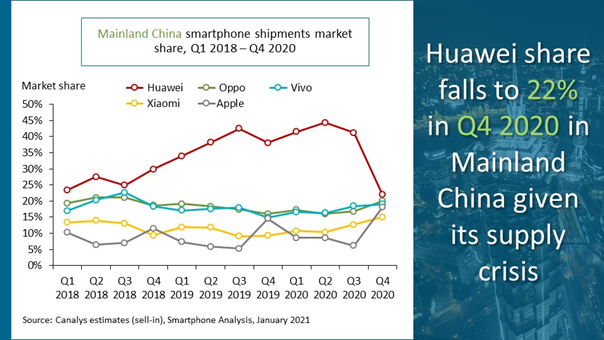In June of 1999, Sequoia Capital and Kleiner Perkins invested $25 million into an early stage company developing a new search engine called Google, paving the way for a revolution in how knowledge online was organized and shared.
Now, Sequoia Capital is placing another bet on a different kind of search engine, one for physical objects in three dimensions, just as the introduction of three dimensional sensing technologies on consumer phones are poised to create a revolution in spatial computing.
At least, that’s the bet that Sequoia Capital’s Shaun Maguire is making on the Cincinnati, Ohio-based startup Physna.
Maguire and Sequoia are leading a $20 million bet into the company alongside Drive Capital, the Columbus, Ohio-based venture firm founded by two former Sequoia partners, Mark Kvamme and Chris Olsen.
“There’s been this open problem in mathematics, which is how you do three dimensional search. How do you define a metric that gives you other similar three dimensional objects. This has a long history in mathematics,” Maguire said. “When I first met [Physna founder] Paul Powers, he had already come up with a wildly novel distance metric to compare different three dimensional objects. If you have one distance metric, you can find other objects that are a distance away. His thinking underlying that is so unbelievably creative. If I were to put it in the language of modern mathematics… it just involves a lot of really advanced ideas that actually also works.”
Powers’ idea — and Physna’s technology — was a long time coming.
A lawyer by training and an entrepreneur at heart, Powers came to the problem of three dimensional search through his old day job as an intellectual property lawyer.
Powers chose IP law because he thought it was the most interesting way to operate at the intersection of technology and law — and would provide good grounding for whatever company the serial entrepreneur would eventually launch next. While practicing, Powers hit upon a big problem, while some intellectual property theft around software and services was easy to catch, it was harder to identify when actual products or parts were being stolen as trade secrets. “We were always able to find 2D intellectual property theft,” Powers said, but catching IP theft in three dimensions was elusive.
From its launch in 2015 through 2019, Powers worked with co-founder and chief technology officer Glenn Warner Jr. on developing the product, which was initially intended to protect product designs from theft. Tragically just as the company was getting ready to unveil its transformation into the three dimensional search engine it had become, Warner died.
Powers soldiered on, rebuilding the company and its executive team with the help of Dennis DeMeyere, who joined the company in 2020 after a stint in Google’s office of the chief technology officer and technical director for Google Cloud.
“When I moved, I jumped on a plane with two checked bags and moved into a hotel, until I could rent a fully furnished home,” DeMeyere told Protocol last year.
Other heavy hitters were also drawn to the Cincinnati-based company thanks in no small part to Olsen and Kvamme’s Silicon Valley connections. They include Github’s chief technology officer, Jason Warner, who has a seat on the company’s board of directors alongside Drive Capital’s co-founder Kvamme, who serves as the chairman.
In Physna, Kvamme, Maguire, and Warner see a combination of Github and Google — especially after the launch last year of the company’s consumer facing site, Thangs.
That site allows users to search for three dimensional objects by a description or by uploading a model or image. As Mike Murphy at Protocol noted, it’s a bit like Thingiverse, Yeggi or other sites used by 3D-printing hobbyists. What the site can also do is show users the collaborative history of each model and the model’s component parts — if it involves different objects.
Hence the GitHub and Google combination. And users can set up profiles to store their own models or collaborate and comment on public models.
What caught Maguire’s eye about the company was the way users were gravitating to the free site. “There were tens of thousands of people using it every day,” he said. It’s a replica of the way many successful companies try a freemium or professional consumer hybrid approach to selling products. “They have a free version and people are using it all the time and loving it. That is a foundation that they can build from,” said Maguire.
And Maguire thinks that the spatial computing wave is coming sooner than anyone may realize. “The new iPhone has LIDAR on it… This is the first consumer device that comes shipped with a 3D scanner with LIDAR and I think three dimensional is about to explode.”
Eventually, Physna could be a technology hub where users can scan three dimensional objects into their phones and have a representational model for reproduction either as a virtual object or as something that can be converted into a file for 3D printing.
Right now, hundreds of businesses have approached the company with different requests for how to apply its technology, according to Powers.
“One new feature will allow you to take a picture of something and not only show you what that is or where it goes. Even if that is into a part of the assembly. We shatter a vase and with the vase shards we can show you how the pieces fit back together,” Powers said.
Typical contracts for the company’s software range from $25,000 to $50,000 for enterprise customers, but the software that powers Physna’s product is more than just a single application, according to Powers.
“We’re not just a product. We’re a fundamental technology,” said Powers. “There is a gap between the physical and the digital.”
For Sequoia and Drive Capital, Physna’s software is the technology to bridge that gap.
from iPhone – TechCrunch https://ift.tt/39vMcZi

